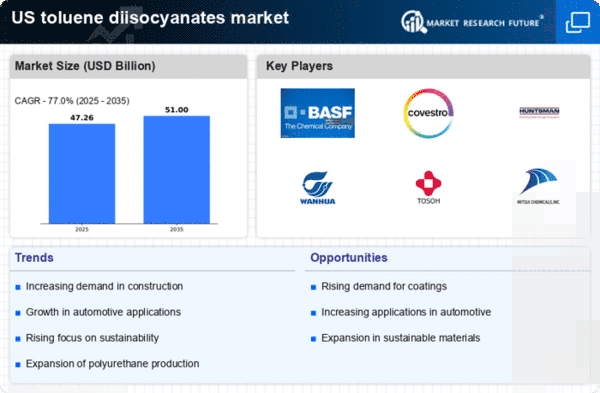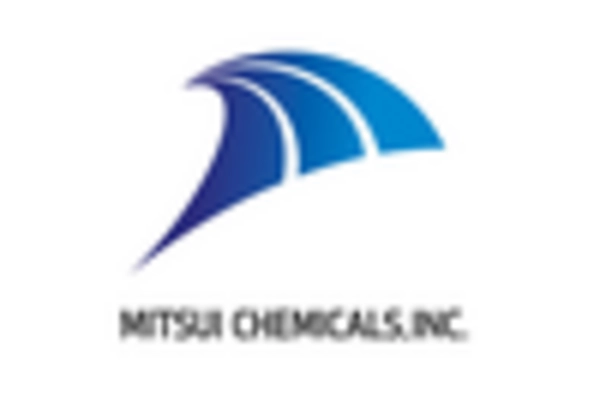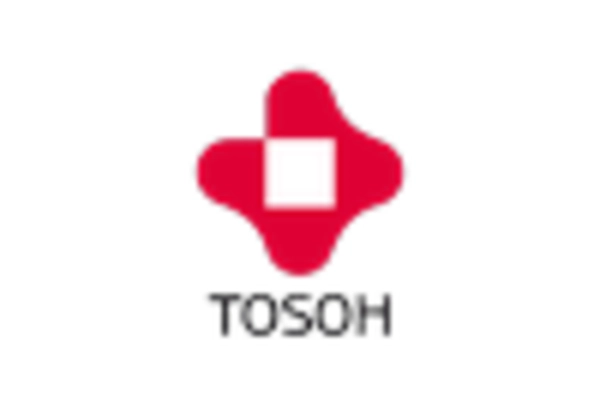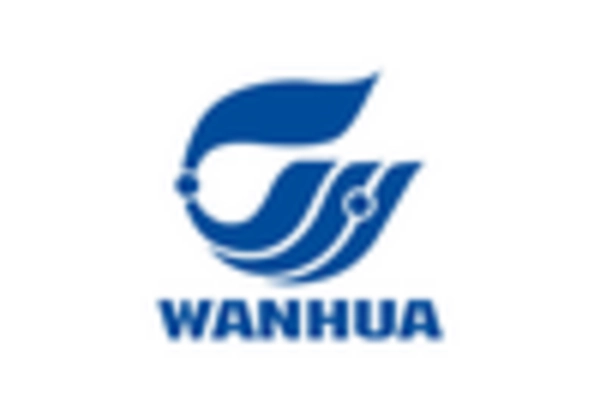The toluene diisocyanates market is characterized by a competitive landscape that is increasingly shaped by innovation, sustainability, and strategic partnerships. Key players such as BASF SE (Germany), Covestro AG (Germany), and Huntsman Corporation (US) are actively pursuing strategies that enhance their market positioning. BASF SE (Germany) focuses on expanding its product portfolio through innovation, while Covestro AG (Germany) emphasizes sustainability in its operations, aiming to reduce carbon emissions. Huntsman Corporation (US) is leveraging digital transformation to optimize its manufacturing processes. Collectively, these strategies contribute to a dynamic competitive environment, where companies are not only vying for market share but also striving to meet evolving customer demands for sustainable solutions.In terms of business tactics, companies are increasingly localizing manufacturing to reduce lead times and enhance supply chain efficiency. The market structure appears moderately fragmented, with several key players exerting considerable influence. This fragmentation allows for a diverse range of products and innovations, yet the presence of dominant firms like Covestro AG (Germany) and BASF SE (Germany) suggests a competitive hierarchy that shapes pricing and availability.
In October Covestro AG (Germany) announced a partnership with a leading renewable energy provider to power its production facilities with 100% renewable energy. This strategic move underscores Covestro's commitment to sustainability and positions the company as a leader in environmentally friendly manufacturing practices. The partnership is likely to enhance Covestro's brand reputation and appeal to environmentally conscious customers, potentially increasing its market share.
In September Huntsman Corporation (US) launched a new line of toluene diisocyanates that incorporates bio-based raw materials. This initiative not only aligns with the growing trend towards sustainable products but also reflects Huntsman's strategic focus on innovation. By diversifying its product offerings, Huntsman may attract a broader customer base and strengthen its competitive position in the market.
In August BASF SE (Germany) completed the expansion of its production facility in the US, increasing its capacity for toluene diisocyanates by 20%. This expansion is indicative of BASF's strategy to meet rising demand and enhance its operational efficiency. The increased capacity may allow BASF to respond more effectively to market fluctuations and customer needs, thereby solidifying its market leadership.
As of November the competitive trends in the toluene diisocyanates market are increasingly defined by digitalization, sustainability, and the integration of advanced technologies. Strategic alliances are becoming more prevalent, as companies recognize the value of collaboration in achieving shared sustainability goals. Looking ahead, competitive differentiation is likely to evolve from traditional price-based competition to a focus on innovation, technological advancements, and supply chain reliability. This shift may redefine market dynamics, compelling companies to invest in research and development to maintain their competitive edge.
















